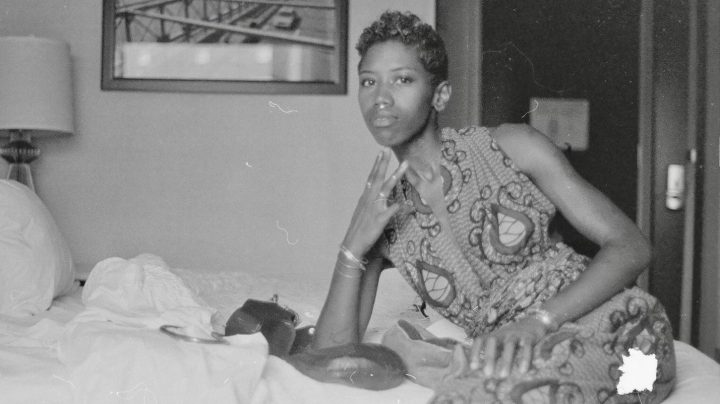
How one artist expanded her role during the pandemic and protests
How one artist expanded her role during the pandemic and protests

Atiya Jones is a multimedia artist living in Pittsburgh. Amid the pandemic and widespread protests over the death of George Floyd, she expanded that role to include mask-making and fundraising.
“I wasn’t comfortable with the idea, especially of the men in my family, as Black men, going out into public spaces wearing bandanas on their faces, and so I became a mask maker,” Jones said. But what started as an effort to provide face coverings for her family quickly became a source of revenue.
“My home became a factory,” she said. “But it also felt really strange to be able to sustain my livelihood on the effects of a pandemic.”

Then the world changed again. “Just as I was gaining stride in mask making and really kind of nailing down that schedule, the first week of June happened, and George Floyd’s murder happened, and Breonna Taylor’s murder happened,” said Jones. Because she didn’t feel comfortable physically going to protest while also making masks, Jones said she looked for ways to support the Black Lives Matter movement from home.
“I asked my Instagram followers if I had ever brought them joy in any way, if they’d ever liked a picture … if they had a dollar in their Venmo account to just send it my way,” she said.
Though Jones said she initially just hoped to double a $200 donation to bail funds, she wound up raising $10,000 that day. “And then I went through the stress of figuring out how to allocate that money, how to move the funds through my own accounts, while still running the business that I had no intention of developing,” she said. “So it’s been a lot of managing emotions in a very, very, wild time.”
Jones said that during this time, she’s developed a greater understanding of how expansive her role as an artist can be.
“I say that I make art about small, accumulative actions,” she said. “Everything in our life is a result of a service of small, accumulative actions, and that’s anything — when you’re examining gentrification, you can’t look at it in this large-scope format, you need to understand that it’s happening on so many micro levels.”
Though the work she’s done over the past few months making masks and fundraising is a different kind of work than abstract line drawings she often creates, Jones said it fits in with that theme of small accumulative actions.
“Looking at my work as a fundraiser, I asked for $1 and I got $10,000, even mask making where I started with 30 and now I’ve made hundreds,” she said. “Looking at the Black revolution of 2020 … thinking about where we spend our money, thinking about the things that we say … we really have to think more about all of the little things we do all day long, because those are the actions that really affect the world.”
You can read more about Jones and the state of the arts economy in an upcoming book, “The Death of the Artist,” by William Deresiewicz.
Let us know how your economy is doing using the form below, and your story may be featured on a future edition of “My Economy.”
There’s a lot happening in the world. Through it all, Marketplace is here for you.
You rely on Marketplace to break down the world’s events and tell you how it affects you in a fact-based, approachable way. We rely on your financial support to keep making that possible.
Your donation today powers the independent journalism that you rely on. For just $5/month, you can help sustain Marketplace so we can keep reporting on the things that matter to you.


















